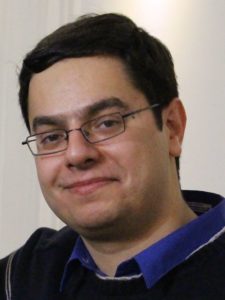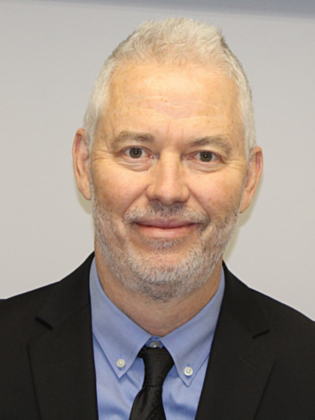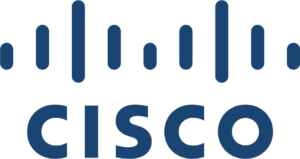Jennifer Rexford, Princeton University
 |
Jennifer joined the Computer Science Department at Princeton University in February 2005 after eight and a half years at AT&T Research. Her research focuses on Internet routing, network measurement, and network management, with the larger goal of making data networks easier to design, understand, and manage. Jennifer is the co-author of the book Web Protocols and Practice: HTTP/1.1, Networking Protocols, Caching, and Traffic Measurement (Addison-Wesley, May 2001) and co-editor of She’s an Engineer? Princeton Alumnae Reflect (Princeton University, 1993, see recent talk about the book). Jennifer served as the Chair of ACM SIGCOMM from 2003 to 2007 and has served on the ACM Council, the board of the Computing Research Association, the advisory council of the Computer and Information Science and Engineering directorate at NSF, and the Computing Community Consortium. She received her BSE degree in electrical engineering from Princeton University in 1991 and her MSE and Ph.D. degrees in computer science and electrical engineering from the University of Michigan in 1993 and 1996, respectively. She was the winner of ACM’s Grace Murray Hopper Award for outstanding young computer professional of the year for 2004. |
|
Title: Networks Capable of Change |
Richard Li, Futurewei Technologies Inc.
 |
Dr. Richard Li is the Head of Network Technologies Lab, Chief Scientist and Vice President of Network Technologies of Futurewei Technologies Inc., Huawei R&D USA. Richard also serves as the Chairman of the ITU-T FG Network 2030. Previously he was the Vice-Chairman of the European ETSI ISG NGP (Next-Generation Protocols) from January 2016 to December 2019. He has also served as Chair of steering committees and technical program committees of some academic and industrial conferences. Before joining Futurewei, he worked with Cisco and Ericsson in the field of networking technologies, standards, solutions, and operating systems. Richard is extremely passionate about advancing data communications technologies and solving problems in their entirety, thus creating a bigger and long-term impact on the networking industry. During his career, Richard spearheaded network technology innovation and development in Routing and MPLS, Mobile Backhaul, Metro and Core Networks, Data Center, Cloud, and Virtualization. Currently, he leads a team of scientists and engineers to develop technologies for next-generation network architectures, protocols, algorithms, and systems in support of forward-looking applications and industry verticals in the context of New IP and Network 2030. |
|
Title: New IP: Market Opportunities and Research Directions Abstract: New IP is a new wave of internet technology developments and innovations. Leveraging and extending the existing IP architecture and protocols, New IP is aimed to address new market challenges and emerging industry verticals in a progressive and evolutionary way while maximally protecting the investment in the current Internet infrastructure. This talk will discuss new market opportunities, challenges, and requirements, and outline some research directions for New IP.
|
Mohammad Alizadeh, Massachusetts Institute of Technology
 |
Mohammad Alizadeh is an Associate Professor of Computer Science at MIT. His research interests are in the areas of computer networks and systems and applied machine learning. His current research focuses on algorithms and protocols for datacenter and wide-area networks, video streaming, and AI-based systems. Mohammad’s research has garnered significant industry interest. His work on datacenter transport protocols has been implemented in Linux and Windows, and has been deployed by large network operators; his work on adaptive network load balancing algorithms has been implemented in Cisco’s flagship datacenter switching products. Mohammad received his Ph.D. from Stanford University and then spent two years at Insieme Networks (a datacenter networking startup) and Cisco before joining MIT. He is a recipient of the Microsoft Research Faculty Fellowship, VMware Systems Research Award, NSF CAREER Award, SIGCOMM Rising Star Award, Alfred P. Sloan Research Fellowship, and multiple best paper awards. |
|
Title: Towards Learning-Augmented Network Systems Abstract: Modern networked systems give rise to many challenging control and resource management problems, from congestion control to video bitrate adaptation to scheduling jobs in computer clusters. Classical approaches to these problems, developed over the last four decades, rely on algorithms designed by human experts. But as network systems have grown in complexity, it has become exceedingly difficult to design control algorithms that perform well in a variety of conditions. In this talk I will discuss some of our work on systems that use reinforcement learning (RL) to learn highly-optimized control algorithms entirely through experience. I will illustrate this approach in two systems, Pensieve and Decima, that use RL to learn, respectively, network-specific bitrate adaptation policies for video streaming and workload-specific scheduling policies for data processing clusters. Finally, I will highlight some of the broader challenges for applying RL to network systems, drawing on lessons learned in building systems like Pensieve and Decima. I will discuss how these challenges can motivate new learning techniques, using our recent work on RL algorithms for “input-driven” environments as an example.
|
Peter Jones, Cisco Systems
 |
Peter is a Distinguished Engineer in Cisco’s Enterprise HW team. He works on system architecture for Cisco’s enterprise switching, routing, wireless, and IoT products. He’s active in IEEE 802.3 and the Ethernet Alliance. He works on the evolution of technology to add value to physical infrastructure, and how to make technology consumable. |
|
Title: Back to the future – 10Mb/s Ethernet again!
Abstract: The business of standards development has changed. We focus on fitting technology to the application, not the other way around. 10Mb/s Single Pair Ethernet (10SPE) has the potential to truly enable IT/OT convergence in our lifetime. What makes it different? |
Yuanyuan Yang, Program Director at the US National Science Foundation
 |
Yuanyuan Yang received the BEng and MS degrees in computer science and engineering from Tsinghua University, Beijing, China, and the MSE and Ph.D. degrees in computer science from Johns Hopkins University, Baltimore, Maryland, USA. Dr. Yang is a SUNY Distinguished Professor in the Department of Electrical & Computer Engineering and Department of Computer Science at Stony Brook University, New York, USA. She is currently on leave serving as a Program Director at the US National Science Foundation. She has served as the Associate Dean for Academic Affairs of College of Engineering and Applied Sciences at Stony Brook University and a Division Director of New York State Center of Excellence in Wireless and Information Technology. Dr. Yang is internationally recognized for her contributions in parallel & distributed computer architectures and systems. She was named an IEEE Fellow in 2009 for contributions to parallel and distributed computing. Her current research interests include parallel computer architecture, network-based computing, cloud computing, edge computing, and mobile computing. She has published over 400 scientific papers in leading refereed journals and conferences. Dr. Yang is currently the Associate Editor-in-Chief for IEEE Transactions on Cloud Computing and an Associate Editor for ACM Computing Surveys. She has served as the Associate Editor-in-Chief for IEEE Transactions on Computers, and an Associate Editor for IEEE Transactions on Computers and IEEE Transactions on Parallel and Distributed Systems. |
|
Title: The Role of Computer Architecture in Emerging Cloud Computing and Edge Computing Paradigms
Abstract: Currently, we are facing great challenges of even-increasing demand of computing power from many computation-intensive applications, such as machine learning, and big data, and the diminishing returns of Moore’s Law and Dennard Scaling of CMOS technology. Cloud computing, and more recently, edge computing have emerged as promising paradigms to address these challenges and provide performance scalability. In this talk, I will explore the central role computer architecture research plays in these new computing paradigms. I will first discuss how to greatly reduce the hardware cost of data center networks by an architectural approach of utilizing inherent server redundancy. I will then present a pervasive edge computing platform where heterogeneous edge devices (e.g., smartphones, tablets, IoT and vehicles) can collaborate to sense, process data and create many novel applications at the edge. I will also show how to implement such a platform by a modular, composable hardware/software architecture with specialized edge devices.
|





